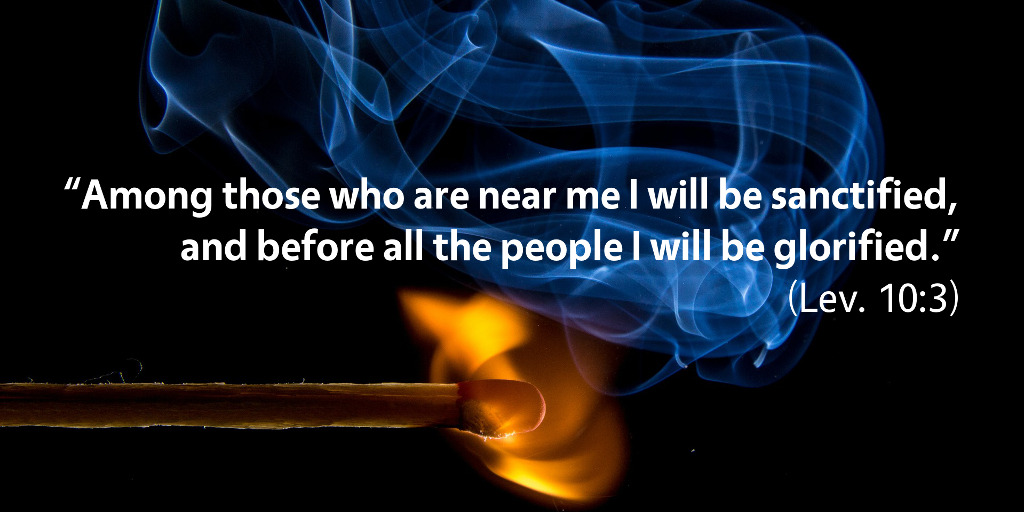Bible Readings for April 7th
Leviticus 10 | Psalms 11–12 | Proverbs 25 | 1 Thessalonians 4
The holiness of God is awful and terrible—not in the sense of being “bad,” but in the sense of commanding great fear, dread, and reverence. One of the great sins of modern Christians is that we take the holiness of God too lightly, over-emphasizing God’s grace and love to the point that his holiness vanishes altogether.
In Leviticus 10, Nadab and Abihu offer up some kind of unauthorized fire on the altar of God, possibly after imbibing wine or strong drink (Lev. 10:9). This defilement of Yahweh’s altar and his holiness provokes him to consume Nadab and Abihu with fire, proclaiming, “Among those who are near me I will be sanctified, and before all the people I will be glorified” (Lev. 10:3). Notice that Yahweh insists on a special kind of responsibility for those who are “near” to him. Those who enjoy the special privilege of Yahweh’s presence are held to a higher standard than those who are not.
The Hebrew word for “unauthorized” (zarah) is a word that occurs in the Bible primarily to speak of the things that are not allowed into the presence of Yahweh. Zarah is the enemy of holiness. So, offering unauthorized fire had been explicitly forbidden in Exodus 30:9, and later in Numbers, one of the main jobs given to the non-priestly Levites is to encamp directly around the tabernacle to prevent unauthorized people (zûr, another form of zarah; Num. 1:51) from coming too near to Yahweh—with lethal force, if necessary.
In the New Testament, Hebrews 10 interprets the significance of Leviticus 10 for us today. First, the author of Hebrews tells us that as Christians, we enjoy the high privilege of being called to “draw near” to God through Christ, all the way into the presence of his holiness (Heb. 10:19–22), just like Nadab and Abihu. Still, he warns us that if we go on sinning deliberately after receiving a knowledge of the truth about Jesus, we stand in terrifying expectation of judgment of God’s holy “fury of fire” (Heb. 10:26–27).
These passages aren’t about losing salvation but about the kind of hardness of heart of someone who goes on for a long period of time hearing the word of God preached, participating in the prayers of the people of God, and even receiving the sacraments of baptism and the Lord’s Supper without ever actually believing, only to fall away completely in the end.
For such a person, the author of Hebrews concludes with this dire warning: “It is a fearful thing to fall into the hands of the living God” (Heb. 10:31). Take stock of your heart and your life: Do you rest in the protection of the righteousness of Jesus Christ with full assurance of faith, or are you in danger of falling into the judgment of the living God?
Podcast: Play in new window | Download (5.5MB) | Embed
Subscribe: Apple Podcasts | RSS | More

Scripture quotations are from The Holy Bible, English Standard Version copyright © 2001 by Crossway Bibles, a division of Good News Publishers. Used by permission. All rights reserved.


